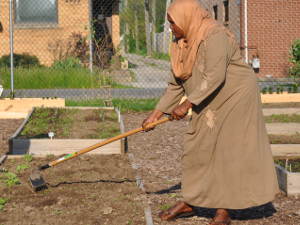The Principles of Catholic Social Tradition,
The Catholic Social Tradition, or CST, is a practical ethic that aims to move the world as it is closer to the kind of world that God means it to be. The Church’s living social tradition is comprised of two integrally related parts: first, the collection of official social teaching documents that articulate moral stances on issues such as poverty and sustainability, and second, two millennia of witnesses striving to enact the Gospel in their daily lives.
How to use this resource in a group or on your own:
- Click on any one of the principles
- Read the description
- Enjoy the reflective prayer
- Watch a brief video introducing a piece of the topic
- Peruse additional readings to deepen your understanding of each principle
- Review examples of our experience in integrating CST into our work
- Consider exploring some of our discussion questions with colleagues
The information above was compiled by Meg Distler and Mark Burkholder as a capstone project for the Catholic Social Tradition and Philanthropy course offered by the Center for Social Concerns at the University of Notre Dame, and the Foundations and Donors Interested in Catholic Activities (FADICA) in the Summer of 2023.







